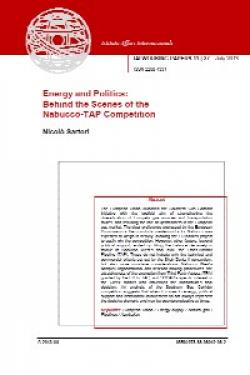Energy and Politics: Behind the Scenes of the Nabucco-TAP Competition
The European Union launched the Southern Gas Corridor initiative with the twofold aim of strengthening the diversification of Europe's gas sources and transportation routes, and reducing the role of upstreamers in the European gas market. The clear preference expressed by the European Commission - the corridor’s mastermind - for Nabucco was expected to weigh in heavily, allowing the EU-backed project to easily win the competition. However, other factors, beyond political support, ended up tilting the balance decisively in favour of Nabucco West's final rival, the Trans-Adriatic Pipeline (TAP). These do not include only the technical and commercial criteria set out by the Shah Deniz II consortium, but also more mundane considerations. Nabucco West's complex organizational and decision-making procedures, the attractiveness of the exemption from Third Party Access (TPA) granted by the EU to TAP, and SOCAR's specific interest in the Greek market also influenced the consortium’s final decision. An analysis of the Southern Gas Corridor competition suggests that when it comes to energy, political support and institutional involvement do not always represent the decisive element, and may be counterproductive at times.
-
Details
Roma, Istituto Affari Internazionali, 2013, 7 p. -
Issue
1327 -
ISBN/ISSN/DOI:
978-88-98042-98-2
Introduction
1. European political support
2. Intervening factors
3. Winners and losers



